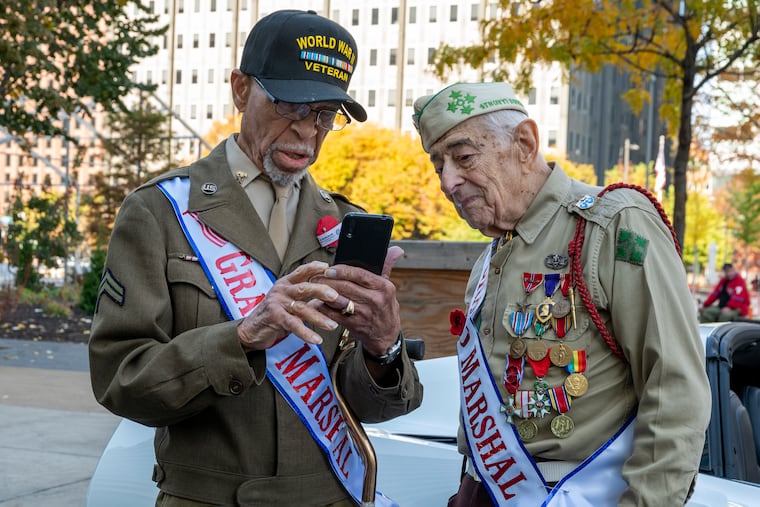100-year-old WWII vet recognized by France with the Legion of Honor for stellar commitment to service
The honor recognizes Cpl. Benjamin Berry’s unusual acts of selfless service and commitment during WWII and to the veteran community

Cpl. Benjamin Berry, a U.S. Army veteran of World War II, received the Order of Merit of the Grand Duchy of Luxembourg in 2021. The following year, he was inducted into the Quartermaster Hall of Fame. In 2023, he was a honorary co-grand marshal of the Philadelphia Veterans Parade.
And next week, on March 18, the 100-year-old Berry will be awarded the highest honor from the French government — the Legion of Honor. The Ceremonie Legion d’honneur will be hosted in an afternoon ceremony at the Chapel of the Four Chaplains in the Philadelphia Navy Yard.
The award, first created by Napoleon Bonaparte in 1802, is now reserved for only 300 people annually whose work has upheld the ideals of France or helped France prevail over the Nazis. The Legion of Honor will recognize Berry’s service and commitment to the veteran community and his service in France during WWII.
The U.S. Department of Veterans Affairs estimates less than 120,000 WWII veterans are still alive, with 131 dying daily. For Berry, each award is another opportunity to remind the country of the war’s history and the soldiers’ sacrifices.
Off to war
Berry, who was raised in Willow Grove, was drafted in 1943 after graduating from Abington Senior High School, one of only three African Americans in his class. He lived a boyhood insulated from the harshness of Jim Crow, but that changed as he entered the armed forces starting with basic training at Camp Ellis in Illinois.
“I remember one experience. We were in St. Louis when we went into a restaurant — similar to a White Tower. It was three of us, all Black, and we got food. But when we tried to sit down they told us, ‘You can’t eat in here,’” Berry said. “We were in uniform and we get that kind of treatment.”
Because the armed forces weren’t integrated until 1948, Berry, who earned the rank of corporal, served with the segregated 863rd Quartermaster Fumigation and Bath Company that provided critical supplies for the troops.
Combat doesn’t discriminate
Twenty days after D-Day, Berry landed at Omaha Beach in Normandy, in what was the largest amphibious invasion in military history. Berry vividly recalled the German concrete reinforced bunkers, in the hills lining the beaches and said American soldiers “were sitting ducks coming off the boats. It’s amazing as many survived as they did. The German pillboxes were cemented in the hillside and they had a great view.”
The soldiers didn’t just survive, they forced Germany into retreat and started the liberation of France and Europe from the Nazis.
After Normandy, Berry’s unit followed the infantry units across Europe and fought in the Battle of the Bulge, the deadliest battle of the war for the U.S., in which more than 19,000 Americans died. “It makes you mature, grow up quick,” Berry said of combat. “It’s killed or be killed. It’s either him or you.”
After the battle’s end in early 1945, Berry helped liberate the Dachau concentration camp. Berry said the Jewish prisoners were little more than “skin and bones” having been “starved and worked to death.”
On the home front
Over one million African American service members took part in World War II but returned to a country where they continued to face discrimination.
Historian and author Stephen E. Ambrose wrote of WWII in his book Citizen Soldiers: “The world’s greatest democracy fought the world’s greatest racist with a segregated army.”
Berry came home in 1945 and attended Bok Vocational School on the GI Bill to learn paperhanging but because African Americans were excluded from the paperhangers’ union, he opened his own business that he ran for 60 years. He married Lois Miller Graves, now deceased, and raised a family of four children in Germantown.
Berry intends to continue making certain the service members who gave all will be remembered.